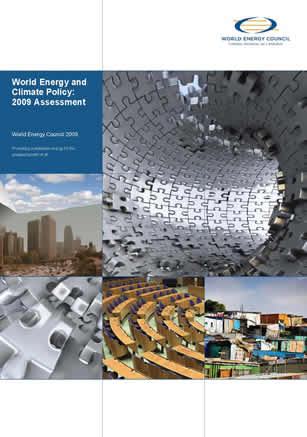The World Energy Council has addressed the challenges highlighted at the United Nations Climate Change Conference 2009 (COP 15) with the publication of a report on World Energy & Climate Policy.
Energy and climate are inextricably linked. With more than 60 per cent of greenhouse gas emissions produced in the energy and energy services sectors, changes in climate are increasingly seen as a product of energy sector activities. Without solutions from the energy sector, there will not be an adequate restraint to climate change.
Energy touches on many policy areas; the need for energy equity among the 1.6bn people in the world who lack access to modern energy. Energy and energy services are the drivers for modern economies and electricity is the keystone of the digital age. However, no challenge is more difficult to handle than climate change, which requires a world-wide commitment to a strong reduction of CO2 emissions.
Energy, and its interconnections with climate, security and economic development, needs to be coordinated from a strong central government department, headed by a senior minister, rather than by multiple stakeholders.
In order to accelerate the move toward global energy equity and security, and environmental sustainability, over 90 member committees of the World Energy Council and their constituent members have conducted a yearly assessment of their own energy policies and practices. This first survey was conducted after considerable thought about the framework within which to conduct the survey, and the methodology to be used.
Analysis of the survey leads to three overall conclusions:
- The presence of strong enabling factors such as institutions, healthcare and education is essential to having energy policies that are effective in practice. Without these enabling factors, even the best policies will not have the intended result.
- For every country the quality of infrastructure and the degree of innovation in turn enable effective energy policy, as for example policies to develop and enforce a strong rule of law in Sweden and Switzerland.
- However, for lower income countries, early attention to social issues, such as education and a minimum level of economic equity, is a good indicator of whether any energy policy is likely to be effective. Without basic equity, tariffs are not paid and markets do not work.





















